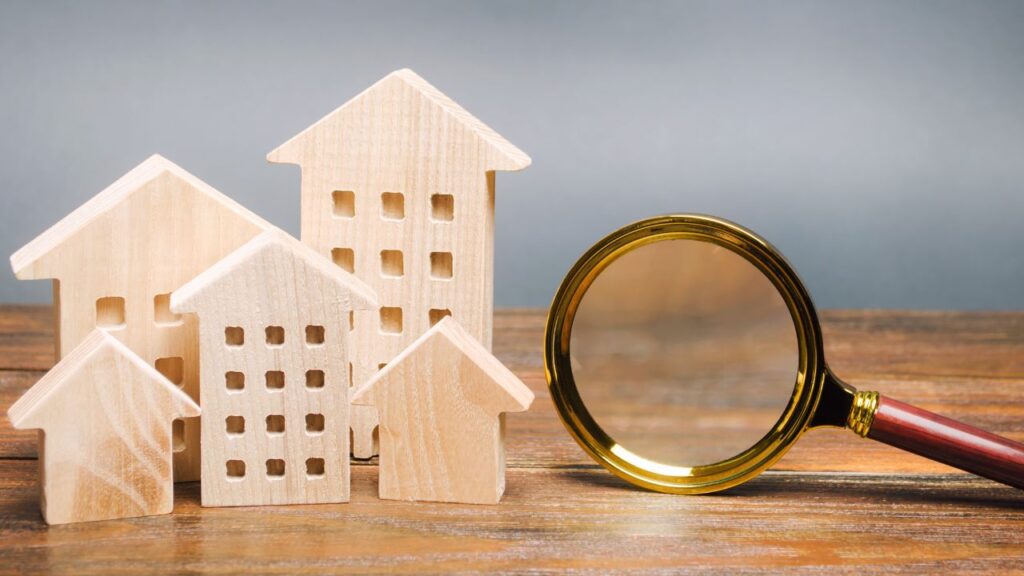Determining the true value of your home can be a complex and often misunderstood process. Many homeowners mistakenly believe that their property’s worth is fixed based on the purchase price, their financial needs, or even the estimates provided by real estate agents and appraisers. However, the reality is that a home’s value is dynamic, influenced by market conditions, comparable sales, and factors such as the neighborhood, lot size, and the condition of the property.
In this blog post, we will explore the various misconceptions about property valuation, the factors that truly determine your home’s worth and the best strategies for setting a competitive asking price. Whether you are considering selling, refinancing, or simply curious about your property’s value, this guide will help you navigate the intricacies of home valuation with confidence.
Your Property Is Not Worth What You Paid For It
One common misconception among homeowners is that their property is worth what they paid for it. However, this is rarely the case. Property values fluctuate due to a myriad of factors, including market conditions, economic trends, and changes in the local neighborhood. The price you paid for your home was a reflection of the market at that specific point in time, but since then, various elements could have influenced its value, either positively or negatively. A home value estimator can help homeowners understand how various factors, such as the neighborhood, lot size, and the condition of the structure, influence their property’s worth.
Additionally, personal investments and renovations may not always yield a direct increase in property value. While updates and improvements can make your home more appealing to potential buyers, they do not always translate to a proportional rise in market value. Factors such as the quality of workmanship, the choice of materials, and even the prevailing tastes and trends in the real estate market play a crucial role. Therefore, it is important to have a realistic understanding that the worth of your property is determined by current market conditions rather than the historical purchase price.
Your Property Is Not Worth the Amount of Cash You Need From the Sale of Your Property
The real estate market is driven by a variety of factors including location, market conditions, property condition, and comparable sales in the area. Buyers are influenced by these objective criteria rather than the seller’s financial needs. Therefore, setting your asking price based on your financial goals rather than market realities can lead to a prolonged listing period or even an unsold property.
Moreover, overpricing your home can deter potential buyers, causing them to overlook your listing in favor of more reasonably priced options. It’s important to consult with a real estate professional who can provide a comparative market analysis (CMA) and help you set a competitive price. Understanding this distinction can help align your expectations with market conditions, ensuring a smoother and more successful sale process.
Your Property Is Not Worth What a Real Estate Agent Says Your Property Is Worth
When it comes to determining the value of your property, it’s crucial to understand that a real estate agent’s opinion is just that—an opinion. While agents can provide valuable insights based on market trends, comparable sales, and their professional experience, their assessment is inherently subjective. Different agents may offer varying estimates depending on their knowledge of the area, recent market activity, and even their motivation to secure your listing. Therefore, relying solely on a single agent’s valuation can be misleading and might not reflect the true market value of your home.
Instead, consider obtaining multiple appraisals and conducting your own research to get a more accurate picture. Look at recent sales of similar properties in your neighborhood, analyze market trends, and consider any unique features your home offers that might influence its value. By combining these approaches, you can arrive at a more realistic estimate of your property’s worth, ensuring you make informed decisions whether you’re selling, refinancing, or simply curious about your home’s market value.
Your Property is Not Worth What an Appraiser Says Your Property Is Worth
While an appraiser provides a professional estimate of your property’s value based on various factors like location, condition, and recent sales of similar properties, this valuation doesn’t always align with market realities. The appraisal is often a conservative estimate meant to satisfy mortgage lenders and tax assessments, reflecting a baseline value rather than the maximum potential price your property could fetch.
Your Property is Worth Its Fair Market Value

When determining the value of your property, it’s crucial to understand that its worth ultimately boils down to what a buyer is willing to pay. While online valuation tools, real estate agents, and appraisals can provide estimates, the final price is dictated by market demand and buyer perception. Online home valuation tools can serve as a useful starting point for determining a property’s value. Factors such as location, condition, recent sales of similar properties, and current market trends play significant roles. However, even the most meticulously calculated valuations can be influenced by buyer emotions, unique property features, and negotiating skills. In essence, your home’s value is not a fixed figure but a dynamic one shaped by the interplay between supply and demand in the real estate market.
Understanding this concept helps set realistic expectations and strategies when selling your home. It’s essential to present your property in its best light, emphasizing its strengths and addressing any weaknesses. Engaging a knowledgeable real estate agent who understands local market conditions can also enhance your ability to attract serious buyers willing to pay a competitive price. Remember, the goal is to find a buyer who sees your property as the perfect fit, thus willing to meet your asking price or close to it.
The Role of Comparable Sales in Home Valuation

When determining the value of a home, one of the most critical factors considered by appraisers and real estate professionals is comparable sales, often referred to as “comps.” Comparable sales are recent transactions of similar properties in the same area that provide a benchmark for assessing a home’s market value. These properties should have similar characteristics such as size, age, condition, and location. By analyzing these sales, professionals can gauge what buyers are willing to pay for a home under similar market conditions, thus ensuring that the valuation is grounded in current, real-world data.
The process involves a detailed comparison of various attributes between the subject property and the comparable sales. Adjustments are made for differences, such as if the comp has a newer kitchen or if the subject property has an extra bathroom. This method helps in capturing the nuances of the local market and reflects the prices that buyers are actually paying, rather than relying on generic estimates. Utilizing comparable sales is essential in providing an accurate and fair market value, which is crucial for sellers setting a listing price, buyers making offers, and lenders approving mortgages.
Pricing Strategies: How to Set the Right Asking Price
Setting the right asking price for your home is crucial for attracting potential buyers and ensuring a timely sale. Working with a real estate agent can greatly enhance this process, as they bring expert knowledge and experience in conducting a comparative market analysis (CMA). By examining the sale prices of similar properties in your area, your agent can provide a realistic idea of your home’s market value. Additionally, they can offer insights into current market conditions, helping you decide whether to set a slightly higher price in a seller’s market or adopt a more competitive pricing strategy in a buyer’s market.
Real estate agents also understand the psychological impact of pricing. They might suggest listing your home just below a major price threshold (e.g., $299,000 instead of $300,000) to make it more attractive to buyers searching within specific budget ranges. Moreover, an agent can provide valuable feedback from potential buyers and adjust the asking price accordingly. By leveraging the expertise of a real estate agent, you can strategically set and modify your asking price to maximize your chances of a successful and swift sale.
Home Valuation FAQs

Why Do I Need to Know My Home’s Value?
Understanding your home’s value is crucial for several reasons. First and foremost, it provides a clear picture of your financial standing and allows you to make informed decisions about selling, refinancing, or investing in home improvements. Knowing your home’s value helps you set a competitive asking price if you decide to sell, ensuring that you attract serious buyers while maximizing your return. Additionally, it can assist in negotiating better loan terms or securing favorable refinancing options, as lenders often base their decisions on the current market value of the property.
Moreover, being aware of your home’s worth can also impact property taxes and insurance premiums. Municipalities use home values to determine property tax rates, and an accurate assessment can help you avoid overpaying. Similarly, insurance companies rely on home valuations to set premiums for homeowners’ insurance policies. By staying informed about your home’s market value, you can ensure that your property is adequately covered without unnecessary costs. Ultimately, knowing your home’s value empowers you to manage your largest asset effectively and make strategic financial decisions.
How Can I Increase the Value of My Home?
Increasing the value of your home involves strategic improvements that enhance both its appeal and functionality. One of the most effective ways is through kitchen and bathroom remodels, which offer some of the highest returns on investment. Modernizing these spaces with updated fixtures, energy-efficient appliances, and quality materials can significantly boost your home’s market value. Additionally, enhancing curb appeal through landscaping, fresh paint, and well-maintained exteriors makes a strong first impression, drawing potential buyers in and setting your home apart in the neighborhood.
Another impactful strategy is to increase the living space within your home. This could involve converting an attic or basement into a functional living area, adding a deck or patio, or even constructing an additional room. These expansions not only add square footage but also provide versatile spaces that can appeal to various buyer needs.
How Often Do Home Values Change?
Home values can fluctuate frequently due to a variety of factors. Market conditions, such as supply and demand dynamics, significantly influence home values on a local and national scale. In a seller’s market, where demand outpaces supply, home prices can rise rapidly as buyers compete for limited inventory. Conversely, in a buyer’s market, where there are more homes for sale than buyers, prices can stagnate or even decline. Economic conditions, including interest rates, employment rates, and inflation, also play a crucial role in determining how often and by how much home values change.
Additionally, localized factors such as neighborhood development, school district quality, and proximity to amenities can cause home values to change independently of broader market trends. Overall, while home values can change frequently, the extent and direction of these changes are influenced by a complex interplay of macroeconomic and local factors.
Understanding the true value of your home is essential for making informed decisions, whether you’re selling, refinancing, or investing in improvements. By recognizing the factors that influence property value and debunking common misconceptions, you can better navigate the real estate market and achieve your goals.
If you’re considering selling your home in Middle Tennessee, don’t leave your property’s value to chance. Contact Bernie Gallerani Real Estate today for a comprehensive market analysis and expert guidance tailored to your unique situation. Let our experienced team help you set the right price and attract serious buyers, ensuring a smooth and successful sale. Reach out to us now to get started on maximizing your home’s potential.
